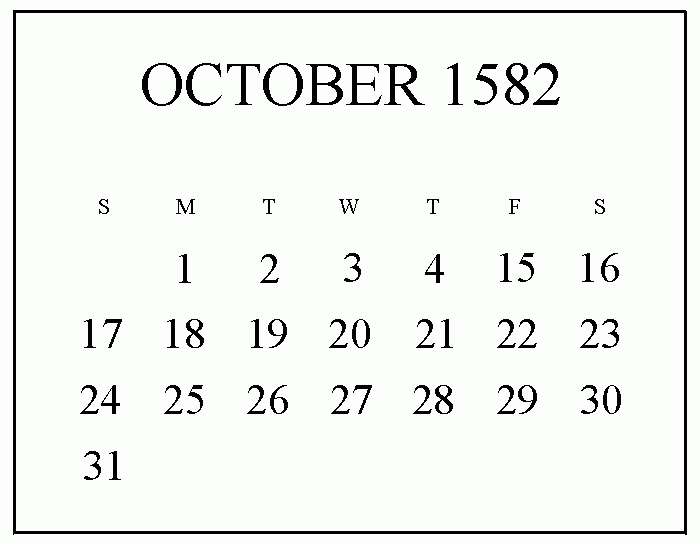In 1582, October calendar underwent a significant change with the introduction of the Gregorian calendar by Pope Gregory XIII. The Julian calendar, which had been in use for centuries, was gradually falling out of sync with the solar year due to its slight inaccuracy. To rectify this, the Gregorian calendar was implemented with a new system of leap years and adjustments to the length of the year.
The most notable change in the Gregorian calendar was the omission of 10 days in October 1582. This adjustment was made to align the calendar with the solar year and bring it back into synchronization. As a result, the day following October 4, 1582, was declared October 15, 1582. This change affected not only the month of October but also the subsequent months to ensure consistency in the calendar system.
In 1582 October Calendar
Impact on Society and Culture
The introduction of the Gregorian calendar had a profound impact on society and culture. It standardized the way dates were recorded and calculated, creating a more uniform and accurate system for timekeeping. This change was particularly important for religious observances, as it ensured that feast days and holidays were celebrated on the correct dates according to the new calendar.
Furthermore, the adjustment to the October calendar in 1582 highlighted the importance of scientific advancements in the field of astronomy and mathematics. The Gregorian calendar was a testament to the precision and accuracy that could be achieved through careful observation and calculation, setting a new standard for timekeeping that is still in use today.
